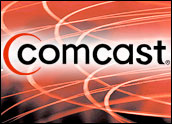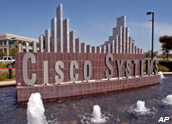
Apparently eyeing the worn pathway from enterprise technology to the consumer marketplace, Cisco Systems is said to be mulling a plan to produce electronics and related products for home use.
The Financial Times reported that Cisco is on the brink of rolling out a range of Web-connected products, including Voice over Internet Protocol (VoIP) telephones, Internet radios and home theater equipment.
Competing With the Big Boys
Cisco believes it can compete with electronics giants such as Sony and Samsung and that its major advantage lies in the fact that it powers networks, enabling it to create and sell devices that are specifically designed to work with the emerging converged network that delivers a host of digital entertainment over an Internet connection.
Cisco did not respond to requests for comment on the report, which quoted an executive as saying that the arrival of movies and other media delivered by Internet represents a market “disruptor” that creates an opportunity for Cisco.
The report did not give a time frame for the rollout of such products or detail whether Cisco would make products itself or co-brand those made by a third party.
Of course, the consumer market would not be entirely new to Cisco. Through its US$500 million purchase of wireless router maker Linksys in 2003, Cisco became a major player in the booming market for small office and home wireless networks.
More recently, it purchased Scientific Atlanta, a maker of set-top boxes for cable systems, a move that analysts said set up Cisco to become a major player at both ends of the versatile Web and TV pipeline into homes.
Plenty of Company
In July of 2005, Cisco bought KiSS Technology of Denmark. Though a minor deal worth around $70 million, the purchase gave Cisco access to the company’s technology, which includes DVD players and recorders that connect to the Internet.
Meanwhile, Cisco is following in the footsteps of many major technology concerns in targeting the consumer, whose appetite for devices such as plasma TVs, portable media players and other high-end gadgets helped fuel a strong year for many device makers.
Intel recently revamped its marketing image as part of a push to find a home for its chips in more consumer devices. Microsoft also has said it hopes to have its software at the center of the new networked home, powering everything from digital music to downloaded movies played on various devices, from PCs to television sets connected to the Web via wired or wireless connections.
All those companies are chasing what analysts say is a booming market. Market researcher In-Stat said the worldwide networked entertainment market was worth around $4 billion last year and will grow four-fold by 2009 to $16.1 billion. By 2009, more than 38 percent of home networks will have at least one entertainment device connected to them, according to In-Stat.
Cisco, like other technology companies, will face the challenge of entering the consumer market without becoming distracted from its core business, Enderle Group Principal Analyst Rob Enderle told the E-Commerce Times.
“The markets are vastly different and the result can be a distraction,” Enderle said. “Consumer launches of Microsoft’s Windows have been known to scare aware corporate buyers who don’t want employees to play music, watch DVDs, or play video games at work. Intel, a few years back, launched their own consumer products and that — along with a number of other distracting projects — helped cause their market share slide and valuation to decline.”
Still, Enderle said Cisco believes its home-network play with Linksys actually feeds back into its business strategy, since many of those who use the networks to connect to the Internet or to corporate networks are employees of the very enterprise customers that Cisco has long served.
Split Personality?
Cisco could be in for a battle. Consumer electronics makers are unlikely to willingly cede market share and may use their pricing power to protect it if necessary. Several companies including Sharp and Fujitsu have recently announced major investments in production capacity meant to make it easier for them to crank out devices to meet consumer demand.
Analysts also note that few companies have managed to be successful consumer electronics makers while also serving customers in the enterprise and telecommunications provider space, where Cisco has made its reputation and most of its money.
“All of the technology vendors have problems with the consumer market,” said Enderle. “They are used to a certain amount of technology competence that the general consumer doesn’t have or want to acquire. This tends to result in products that are overly complex and difficult to sell. Cisco is better then most but it is hard to point to a single product they have that stand ahead of the pack when it comes to consumer level ease-of-use.”
Cisco is apparently bidding for end-to-end coverage, recognizing that converged networks will be the means to deliver a broad range of services and wanting to control as much of what goes on at both ends of the pipeline as possible, Telecom analyst Jeff Kagan told the E-Commerce Times. That plan was made clear with the Scientific-Atlanta buy, he added.
“Cisco wants a way to deliver all the services a network can carry to all their customers,” Kagan concluded.
























































Social Media
See all Social Media